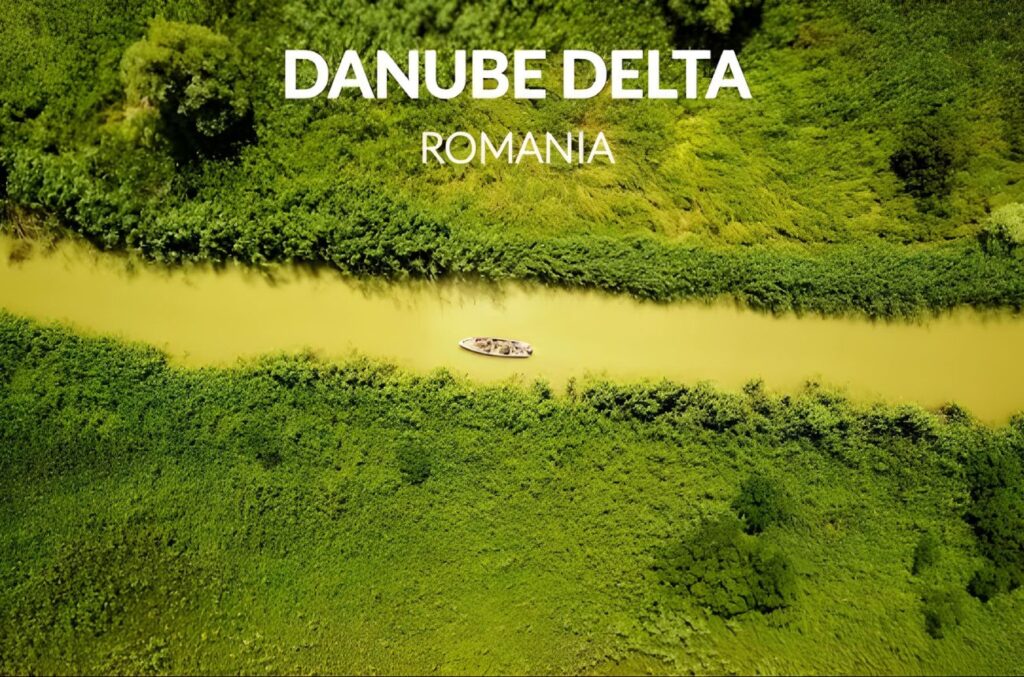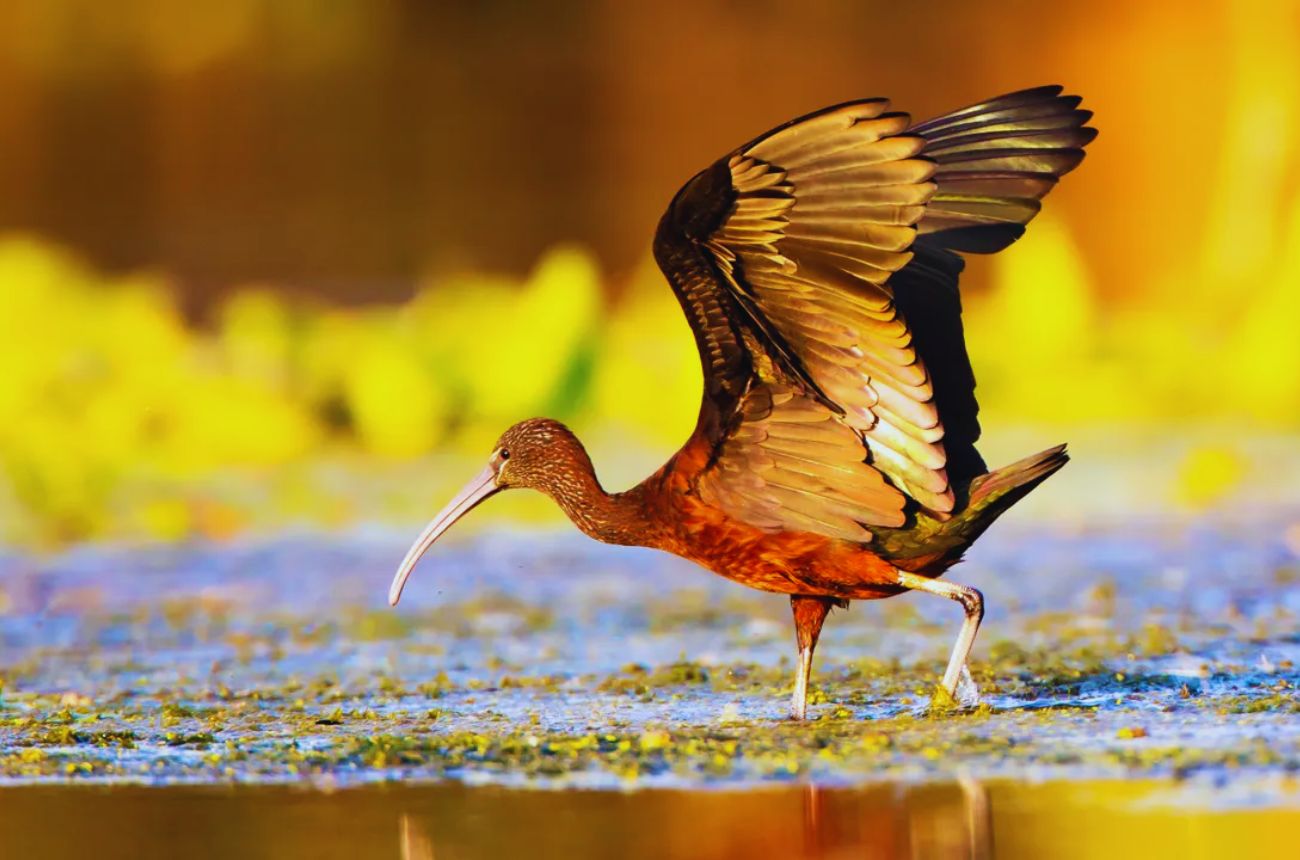“Father and son can get closer to eagles, pelicans, and glossy ibis during a cruise on the incredibly different and wild waters.”
From the scream of a bird that sounded like a synthesiser among many other sounds, one notices it alone. A purplish sunset emerging far away could be seen on the horizon over the expansive wetlands that make up Europe’s largest water. “It is just like the outback,” explains Charlie Ottley, an English documentary maker who has hosted two Netflix documentary series about Romania. Europe has a higher level of biodiversity than most other continents in terms of the number of species present per unit area.”
Right here on the upper deck of a floating hotel in Romania’s Danube Delta, Tommy, my 8-year-old son, and I are wrapping up a long day. The Danube, which originates in Germany’s Black Forest and meanders through ten other countries, ends here by emptying its waters into the Black Sea. “It’s like Europe’s Amazon,” says Ottley, pointing at a vast system of reeds, thousands of small rivers, floating islands, peat bogs, lakes, and woods.
I have been living in Romania for almost ten years but I have never visited the Danube Delta. The delights I encounter seem like another state within a state, an untamed and vast jungle that can easily equal or surpass the better-known Carpathian mountains in terms of abundant wildlife and culture.”
On a wetland wilderness guided tour led by Daniel Petrescu, a guide who knows a lot about this Unesco-labelled nature reserve and can mimic bird songs well, we are part of a group that numbers a dozen people
The entrance point to the delta near the Turkish frontier for a launching place for our open-deck sightseeing vessel is Tulcea. This district is crossed by the Trofilca Canal. Its banks are where 20 couples of kingfishers dig their burrows out of soil. That’s why it is called Kingfisher Alley by Ottley and we spend hours here following this “feed track” with flashing blue darts all around us, transforming the narrow waterway into something from bedtime stories and fairy tales.
The Danube Delta is like an Olympic to a sportsman which is beloved by bird watchers due to the residence and movement of many birds including white and Dalmatian pelicans, purple herons, white-tailed eagles, pygmy cormorants, glossy ibises and red-breasted geese to count over three hundred species that live there temporarily or permanently. Moreover, this area serves as a nesting ground for these types of birds.
“The Danube Delta is an absolute must,” Ottley says.”People also come to this place for spiritual rest if they try to get in touch with wild nature through bird watching and similar activities – it feels like civilization is miles away.”
We reached a lake from whose foetid waters hundreds of dignified white pelicans were scooping up their meal. I borrowed Petrescu’s binoculars and considered the scene in detail. It was amazing to see how funny they looked close-up, with their big, spoon-like beaks taking gigantic draughts of prey.

A person by the name of Ottley who has become an ambassador for Romania was responsible for putting together a trip that took over three days. This hotel has ten bedrooms which are very comfortable where each has its own bath, and cabins for chefs, and is run on solar power mostly. Through large windows in the main dining area, great panoramas of land can be seen. There’s an additional smaller boat that pulls alongside as they go into marshes with dense vegetation while other visitors return up the river.
Before venturing deeper into the delta, we spent our first night pinned to the bank at Tulcea. It was as if we were part of a David Attenborough show as Tommy and I sailed on.
There are a lot of things you can look at and do, although it is not a place to hurry around. Some individuals arrive on this island using speedboats zooming in and out of their nests scaring birds off,” Ottley pauses then continues “Often they end up seeing very little.
On our first full day, we sit on the slow-moving viewing boat marvelling at our tranquil surroundings while meandering narrow channels and open lakes. Next, we go back to our floating hotel where we are served a dinner of local foods: cat-fish soup first and then pike perch with potatoes, all seasoned together with the strongly flavoured murder sauce (which is prepared using lots of garlic)
We see a magnificent white-tailed eagle, some black-throated loons, and one of many thousands of pairs of white pelicans that come back every spring from Africa to nest here, from the upper deck.
Wildlife is not the only thing to be captivated by in this region. In addition, people who have a rich history and communities are found on these lakes. This area has Lipovans, who are ethnic Russians who settled in Romania centuries ago after they split from the Russian Orthodox Church. Ivan Patzaichin, a canoeist who won Olympic gold medals died in 2021 and describes how he got into the sport through inspiration from other successful canoeists in his small delta village called Crișan.
This is how Ottley describes his friend who died recently, “He had a passion for developing the Danube delta but mainly in promoting slow tourism.” During the 19th Century, Sir Charles Hartley, who was an English engineer and was commonly referred to as the Father of the Danube, was important in changing the Sulina channel into what it is today as a commercial thoroughfare.
When the sun goes down, we arrive at a hidden beach next to the Sulina harbour near the Black Sea. He asks me to join him after seeing six brightly coloured green tree frogs, despite the chilling 14C sea water.”
Then we return upstream to Perla, the town’s leading canteen, where we enjoy the most memorable gastronomic delight ever: pike caviar accompanied by fresh bread as well as a piece of lemon and onion after which Japanese sea snails in abundant garlic and chilli sauce come in bowls since they are invaders that flourish in the Black Sea.“Well, you are giving the environment a service by consuming,”’ Ottley points out.
The big surprise about the place is the grandeur of it. — “You’ll never realise how huge it is until you come here,” says Petrescu, adding “And it’s almost untouched since humans avoid this area”. This location has such grandeur that one cannot comprehend its capacity until one visits it.
After several hours through lakes and channels, we head to the subtropical forest called Letea, home to wild horses, strange plants, and insects that are not to be found anywhere else, also with gently rolling dunes. Even though the galloping horses are pretty, they pose a threat to the delicate ecosystem of the region.
“We travel on a rough horse and cart through the meadow to where the forest area is closed off as a protective measure. “These are graceful and magnificent creatures and everyone loves seeing horses prance about freely,” Petrescu, who hails from Letea, suggests. “There should not be too many of them in any case in this exceptional location.”
We have lunch at Letea in a traditional thatched-roof house with a garden. Then we walk around the village and notice that the community has many deserted houses due to economic migration. Nevertheless, times seem to be changing for the better. According to Petrescu, nowadays tourism plays a significant role in the local population’s survival. This is possible because it is difficult for someone to reside in such an isolated area.
On our last*morning* At 5 a.m., I look out of the window; the sun is rising over thick reed beds as our hotel heads back to Tulcea, whence the return journey, then I climb up to the upper deck for better views of the light as it spreads.
Several hours later, as we near Tulcea, with its communist-era blocks composing the horizon, I mention to Ott that it’s a little bizarre being back in civilisation. “It’s like you can truly disappear into this,” he says. “In such an amazing way, it carries you along.”. The voyage was given by Ibis Tours, who organise six-night voyages on a floating inn starting at €800 per person with transfers, meals, and others.

2 thoughts on “Exploring Europe’s Amazon: A Wildlife Adventure in Romania’s Danube Delta”
Comments are closed.